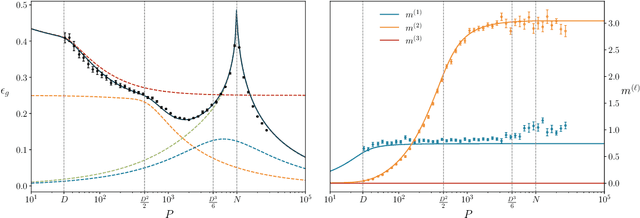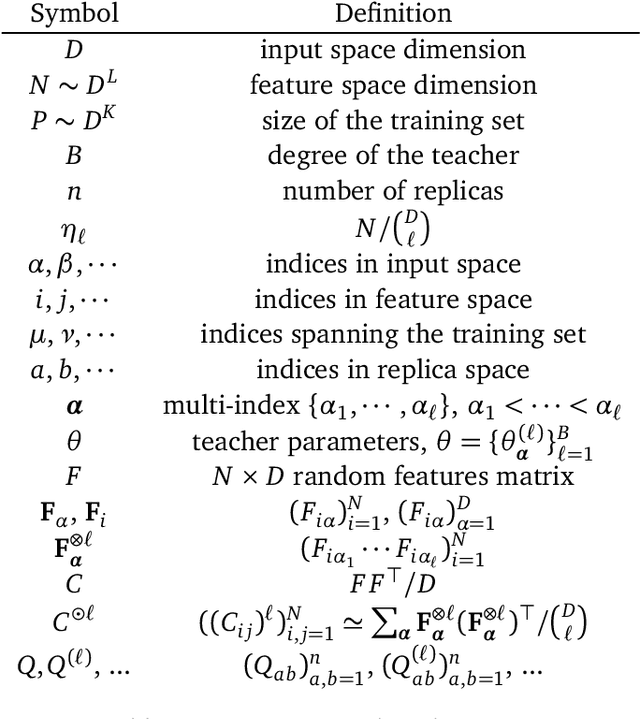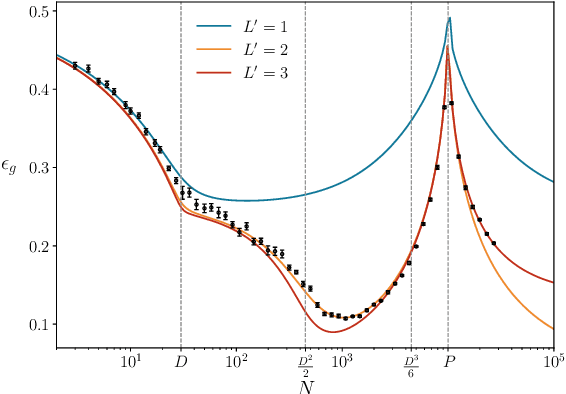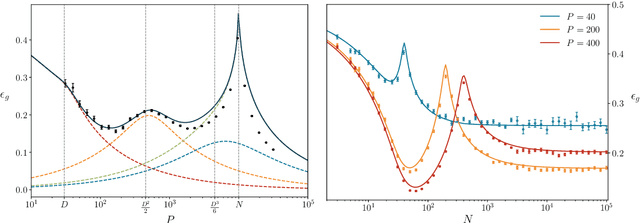Random features and polynomial rules
Paper and Code
Feb 15, 2024



Random features models play a distinguished role in the theory of deep learning, describing the behavior of neural networks close to their infinite-width limit. In this work, we present a thorough analysis of the generalization performance of random features models for generic supervised learning problems with Gaussian data. Our approach, built with tools from the statistical mechanics of disordered systems, maps the random features model to an equivalent polynomial model, and allows us to plot average generalization curves as functions of the two main control parameters of the problem: the number of random features $N$ and the size $P$ of the training set, both assumed to scale as powers in the input dimension $D$. Our results extend the case of proportional scaling between $N$, $P$ and $D$. They are in accordance with rigorous bounds known for certain particular learning tasks and are in quantitative agreement with numerical experiments performed over many order of magnitudes of $N$ and $P$. We find good agreement also far from the asymptotic limits where $D\to \infty$ and at least one between $P/D^K$, $N/D^L$ remains finite.
 Add to Chrome
Add to Chrome Add to Firefox
Add to Firefox Add to Edge
Add to Edge